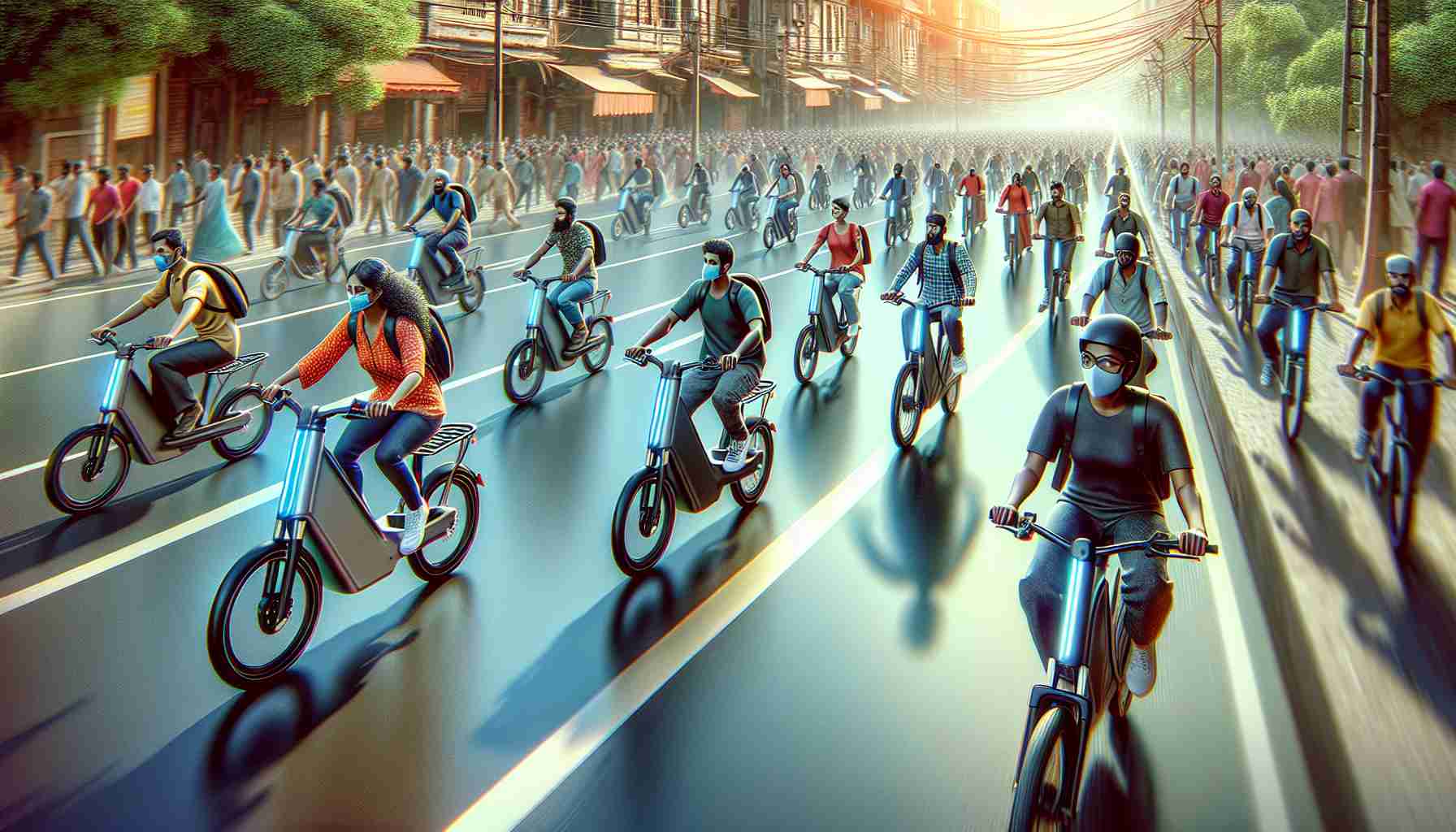While electric cars dominate conversations surrounding the EV revolution, India has its sights set on decarbonizing personal transportation in a different way—through electric bikes. With approximately 300 million bikes in the country, it’s surprising that India has never had a racing team dedicated to this mode of transport. Abhishek Reddy Kankanala, the owner of Indian racing team Inde, recognized this gap and sought to create opportunities for bike sport in India.
Instead of building a Moto GP team, Kankanala decided to champion electric bikes as the future of transportation. Out of the 300 million bikes in India, only about 2 million are electric, indicating vast room for growth. Kankanala believes that showcasing electric bikes through a racing team can change perceptions and highlight their benefits, such as longer battery life, better bikes, and improved frames.
By focusing on electric bikes, India addresses a significant contributor to pollution and the environmental challenges it faces. The government has taken measures to promote the electrification of buses, cars, and scooters by providing subsidies. However, the perception needs to shift towards electrifying regular motorcycles as well, coupled with affordability to cater to India’s price-conscious market.
Aside from environmental factors, bikes hold a special place in India’s transportation culture. Despite aspirations for car ownership, many Indians still choose to commute on bikes. It is not only a practical choice but also a cultural preference, particularly among the younger generation. Recognizing this, the government acknowledges that transitioning bikes to electric power is a highly effective way to promote sustainable transportation.
To promote electrified motorcycles and create awareness, the FIM E-Xplorer World Cup was established. This series focuses on the “cool factor” of electric bikes and aims to make them accessible and appealing to the Indian biking community. With significant traction and engagement on social media, the E-Xplorer series has successfully grabbed attention and resonated with audiences.
The potential impact of the E-Xplorer series has attracted the interest of motorbike manufacturers, who see an opportunity to promote their own journey towards electrification. A round table discussion involving top manufacturers is set to take place, opening doors for collaborations and showcasing the latest hardware technology.
Moreover, the E-Xplorer series not only promotes electric bike use but also acts as a catalyst for local manufacturing and technology development. By tying up with local manufacturers and creating a platform for them to exhibit their products and develop technology, the E-Xplorer series aims to boost the Indian electric vehicle ecosystem.
As India represents a massive market for electric motorbike sales, embracing electric bikes as a primary mode of personal transportation could lead to a significant reduction in pollution and pave the way for a greener future. The E-Xplorer series plays a crucial role in accelerating this transition and showcasing the power of electric vehicles in India.
Industry and Market Forecasts:
The electric bike industry in India is poised for substantial growth as the country aims to decarbonize personal transportation. With approximately 300 million bikes in the country, the market potential for electric bikes is enormous. Currently, out of the 300 million bikes, only around 2 million are electric, indicating a vast room for growth in the coming years.
According to market forecasts, the electric bike market in India is expected to witness a compound annual growth rate (CAGR) of over 30% during the forecast period. The increasing demand for eco-friendly transportation options, coupled with government initiatives and subsidies, will be the key drivers for this growth. The market is also benefiting from advancements in battery technology, making electric bikes more efficient and reliable.
Issues and Challenges:
One of the primary challenges for the electric bike industry in India is the perception shift required among consumers. While awareness about electric cars and scooters is relatively high, electric bikes are still considered a niche segment. Educating consumers about the benefits of electric bikes, such as longer battery life, improved performance, and reduced emissions, will be crucial in driving adoption.
Affordability is another challenge that needs to be addressed. Price-conscious consumers in India often prioritize affordability over environmental concerns. To accelerate the transition to electric bikes, manufacturers need to focus on making their offerings cost-effective without compromising on quality and performance. Government subsidies and incentives can play a significant role in making electric bikes more accessible and appealing to a broader market.
Related Links:
– PV Magazine
– Moneycontrol
– Bike India
